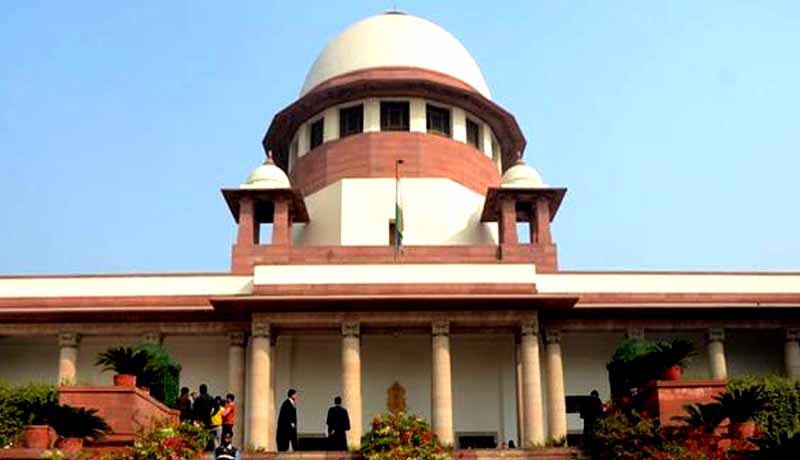Levy of Entry Tax would not violate Right to Free Trade and Commerce guaranteed under Constitution, rules SC [Read Judgment]

Ambiguity – Supreme Court – Tax – Taxscan
Ambiguity – Supreme Court – Tax – Taxscan
A Nine Judge bench of Supreme Court of India today upheld the Constitutional validity of the various State Government legislations to levy Entry Tax for goods coming outside from its territory.
The bench led by Chief Justice of India ruled that the tax legislation by the state does not require the consent of the President under Article 304 B of the Constitution of India. Entry Tax is not violative of the constitutionally recognised right to free trade commerce and intercourse guaranteed under Article 301 of the Constitution of India.
The bench also observed that, Taxes simpliciter are not within the contemplation of Part XIII of the Constitution of India. The word ‘Free’ used in Article 301 does not mean “free from taxation”. Only such taxes as are discriminatory in nature are prohibited by Article 304(a). It follows that levy of a non-discriminatory tax would not constitute an infraction of Article 301.
Article 304 (a) frowns upon discrimination (of a hostile nature in the protectionist sense) and not on mere differentiation. Therefore, incentives, set-offs etc. granted to a specified class of dealers for a limited period of time in a non-hostile fashion with a view to developing economically backward areas would not violate Article 304(a). The question whether the levies in the present case indeed satisfy this test is left to be determined by the regular benches hearing the matters.
States are well within their right to design their fiscal legislations to ensure that the tax burden on goods imported from other States and goods produced within the State fall equally. Such measures if taken would not contravene Article 304(a) of the Constitution.
The High Courts of Assam, Arunachal Pradesh, Jharkhand, Kerala and Tamil Nadu had struck down the levies imposed by their respective States on the ground that they were discriminatory in nature hence violative of Article 304(a) of the Constitution.
In a 883 page Judgment, Justice D.Y Chandrachud and Justice Ashok Bhushan wrote dissenting Judgment.
Read the full text of the Judgment below.


